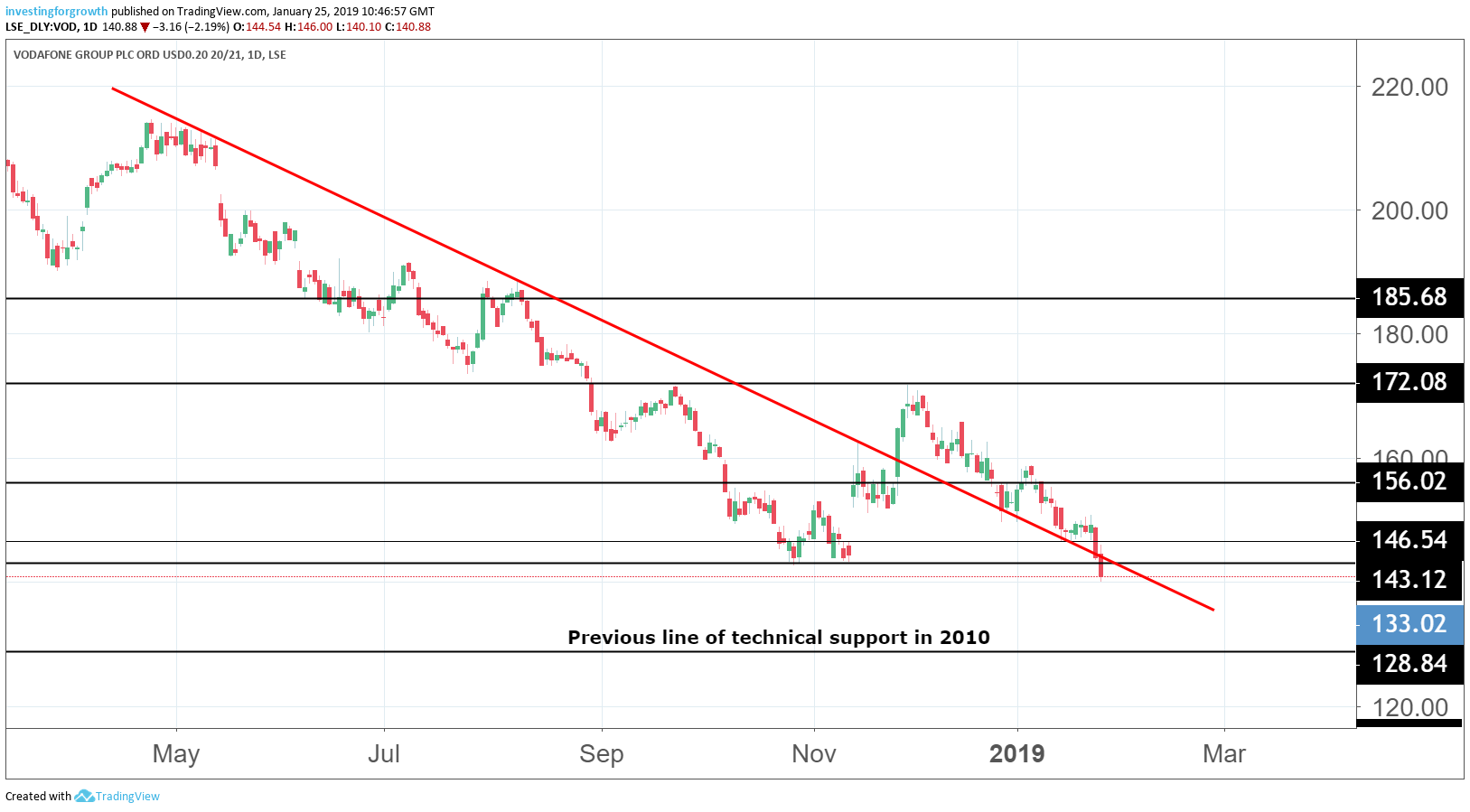Vodafone shares mauled by bears again
25th January 2019 11:01
by Richard Hunter from interactive investor
Our head of markets explains why unloved Vodafone's share price hasn't been this low since summer 2010.

Vodafone (LSE:VOD) is a complex business and has, over recent years, largely changed its focus and even its structure.
Various historical forays into countries such as India and certain acquisitions have simply not worked. Part of the reason for this, especially of late, is the limited pricing power which accompanies mobile phones, while at the same time fixed costs remain high. In addition, the merits of the proposed Liberty Global (NASDAQ:LBTYA) deal are clear, but bring additional cost and integration risk.
Most revenue metrics for the third quarter are under pressure, with additional headwinds coming from foreign exchange. Of particular concern is a growing voice within the investment community that the dividend itself, where the current yield of 9.3% is a patent invitation to income-seeking investors, could become unsustainable given pressures on revenues.
Yet bulls of the stock remain, and have done so throughout Vodafone's chequered past. There are some signs of progress, such as the important German and UK markets, which are holding up reasonably well. The company has also highlighted positive trends in Italy and Spain, although these have not yet translated into a meaningful financial contribution.

Source: TradingView (*) Past performance is not a guide to future performance
Meanwhile, the group's expansion into offering multiple products is showing promise and, further out the potential sale of Vodafone's UK tower assets could bring some capital relief. In addition, tie-ups with the likes of Telefonica (XMAD:TEF) and International Business Machines (NYSE:IBM)could bring synergies, there is no statement from the company to suggest any pressure on the dividend, although it was prudently held at the last update, and Vodafone has maintained its guidance for the full year.
In due course, the group also sees the Liberty Global deal as providing further cost-saving opportunities, on top of the aggressive programme already in place.
- The week ahead: Vodafone, Burberry, Fevertree
- Six speculative UK share tips for 2019
- A successful chartist's forecast for Vodafone shares
The share price has suffered amidst the company's complexity and fierce competition within the sector. It has dropped 36% over the last year, as compared to a 10.5% dip for the wider FTSE 100 index, and has fallen 19% in the last six months alone.
Even so, as has long been the case with Vodafone, the potential if not the execution is evident, which might explain the fact that the market consensus of the shares remains doggedly at a 'buy'.
*Horizontal lines on charts represent levels of previous technical support and resistance. Trendlines are marked in red.
These articles are provided for information purposes only. Occasionally, an opinion about whether to buy or sell a specific investment may be provided by third parties. The content is not intended to be a personal recommendation to buy or sell any financial instrument or product, or to adopt any investment strategy as it is not provided based on an assessment of your investing knowledge and experience, your financial situation or your investment objectives. The value of your investments, and the income derived from them, may go down as well as up. You may not get back all the money that you invest. The investments referred to in this article may not be suitable for all investors, and if in doubt, an investor should seek advice from a qualified investment adviser.
Full performance can be found on the company or index summary page on the interactive investor website. Simply click on the company's or index name highlighted in the article.